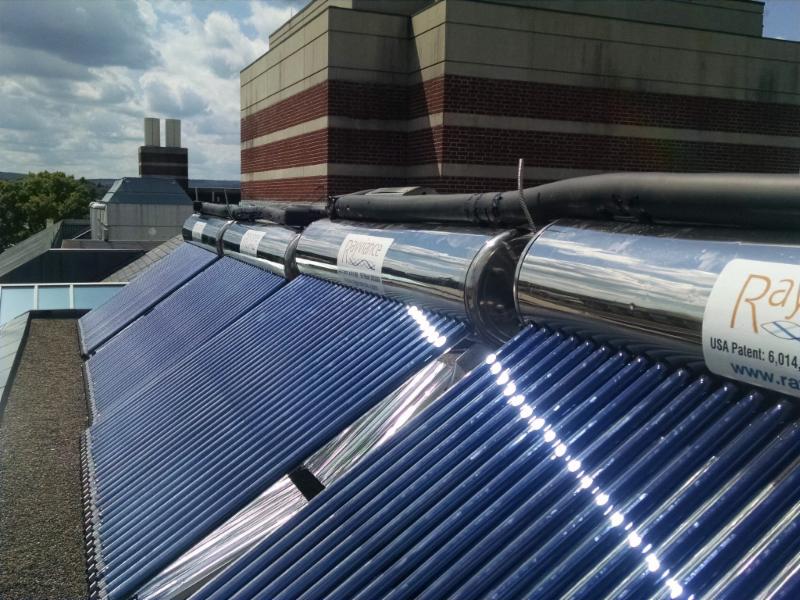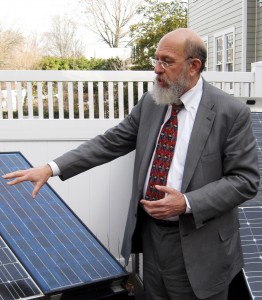Solar Hotwater Webinar – What you need to know from Security & Sustainability Forum on Vimeo.
Also, download the webinar slides here.
6/28/2017

SSF started a new webinar series to feature green energy and environmentally friendly technologies with big potential benefits. The purpose of Going Green Without Going Into the Red is to learn about green technology applications and provide developers an opportunity to feature their innovations.
The format for Going Green Without Going Into the Red is
- a presentation by a technical expert about the technology area
- a short product presentation by the developer
- questioning by the expert
- audience Q&A.
Scott Sklar, a noted clean energy technology leader, agreed to be the expert to kick off the series. Scott was the Executive Director of the Solar Energy Industries Association, so start with a solar application and focus on hot water heating. Water heating systems are the second biggest user of electricity in the home, accounting for an average of 18 percent of electricity costs, according to the U.S. Department of Energy. So the impact of solar alternatives is significant.

Rayviance Installed
Solar energy can be used in several ways to heat water for domestic, commercial and industrial uses. Examples include photo voltaic cells to generate electricity for hot water heaters and both passive and active thermal solar systems for direct heat.
With the cost of solar equipment dropping, there are significant savings in solar hot water, but what are the considerations in determining which technology is best for your situation?
In this 60-minute webinar, Scott Sklar reviewed the pros and cons of investing in a solar hot water system (residential, commercial and industrial uses) and what to consider in making the investment decision. We also heard from Arden Steiner, co-founder of Rayviance. The firm has added innovations to its license for a solar hot water technology based on a pump free thermosyphon convection flow system. Arden has installed the system in a number of commercial and residential sites and will present them as case studies in the webinar. He explains why Rayviance has significant operational and cost advantages over the alternatives. Scott questions Arden about the technology and its advantages.
Meet the Panel

Scott Sklar is President of The Stella Group, Ltd. a strategic policy and clean technology optimization firm facilitating clean distributed energy utilization which includes advanced batteries and controls, energy efficiency, fuel cells, geoexchange, heat engines, minigeneration (propane/natural gas), microhydropower (and freeflow, tidal, wave), modular biomass, photovoltaics, small wind, and solar thermal (including daylighting, water heating, industrial preheat, building air-conditioning, and electric power generation).
Previously, Scott Sklar served for 15 years simultaneously running two Washington, DC-based trade associations, as Executive Director of both the Solar Energy Industries Association and the National BioEnergy Industries Association.

Arden Steiner is a business owner in the energy industry. He is the general manager of Affordable Fuels, a full service energy marketer in Middleburg, Pa. Arden is also one of the founders of Rayviance, which has the US license for the solar hot water system. The technology was originally developed by the U.S. Agency for International Development for a project in Nepal. Arden and his team subsequently added a number of improvements to enhance the system’s operational efficiency and durability. Arden provides case studies by describing specific installations.
